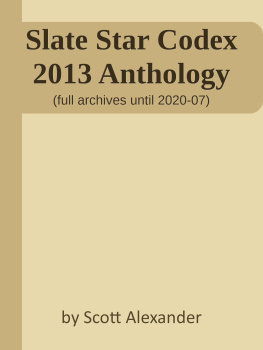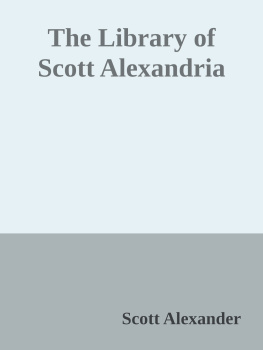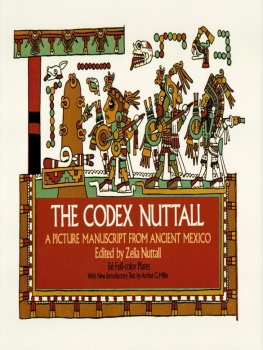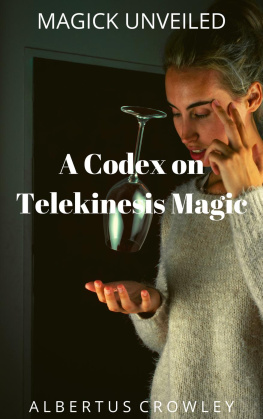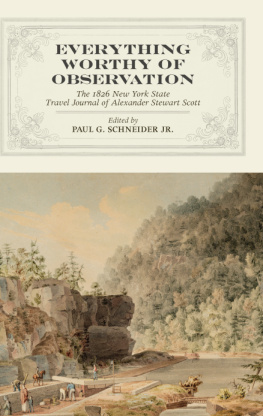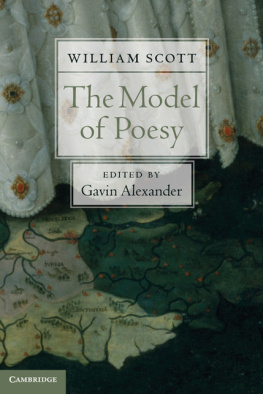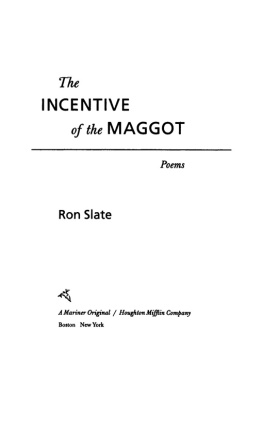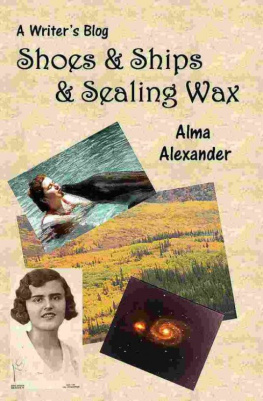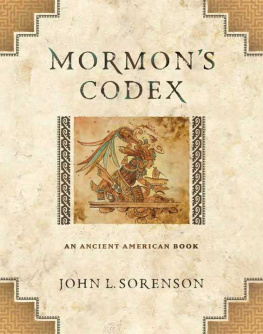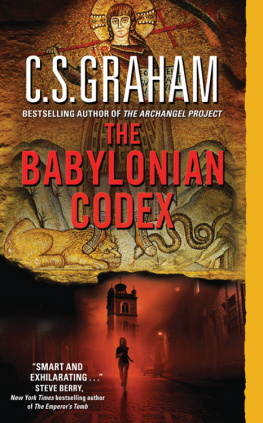Scott Alexander - Slate Star Codex 2013-2020
Here you can read online Scott Alexander - Slate Star Codex 2013-2020 full text of the book (entire story) in english for free. Download pdf and epub, get meaning, cover and reviews about this ebook. genre: Art. Description of the work, (preface) as well as reviews are available. Best literature library LitArk.com created for fans of good reading and offers a wide selection of genres:
Romance novel
Science fiction
Adventure
Detective
Science
History
Home and family
Prose
Art
Politics
Computer
Non-fiction
Religion
Business
Children
Humor
Choose a favorite category and find really read worthwhile books. Enjoy immersion in the world of imagination, feel the emotions of the characters or learn something new for yourself, make an fascinating discovery.
- Book:Slate Star Codex 2013-2020
- Author:
- Genre:
- Rating:4 / 5
- Favourites:Add to favourites
- Your mark:
- 80
- 1
- 2
- 3
- 4
- 5
Slate Star Codex 2013-2020: summary, description and annotation
We offer to read an annotation, description, summary or preface (depends on what the author of the book "Slate Star Codex 2013-2020" wrote himself). If you haven't found the necessary information about the book — write in the comments, we will try to find it.
Slate Star Codex 2013-2020 — read online for free the complete book (whole text) full work
Below is the text of the book, divided by pages. System saving the place of the last page read, allows you to conveniently read the book "Slate Star Codex 2013-2020" online for free, without having to search again every time where you left off. Put a bookmark, and you can go to the page where you finished reading at any time.
Font size:
Interval:
Bookmark:

Due to an oversight by the ancient Greeks, there is no Muse of blogging. Denied the ability to begin with a proper Invocation To The Muse, I will compensate with some relatively boring introductions.
The name of this blog is Slate Star Codex. It is almost an anagram of my own name, Scott S Alexander. It is unfortunately missing an n, because anagramming is hard. I have placed an extra n in the header image, to restore cosmic balance.
This blog does not have a subject, but it has an ethos. That ethos might be summed up as: charity over absurdity.
Absurdity is the natural human tendency to dismiss anything you disagree with as so stupid it doesnt even deserve consideration. In fact, you are virtuous for not considering it, maybe even heroic! Youre refusing to dignify the evil peddlers of bunkum by acknowledging them as legitimate debate partners.
Charity is the ability to override that response. To assume that if you dont understand how someone could possibly believe something as stupid as they do, that this is more likely a failure of understanding on your part than a failure of reason on theirs.
There are many things charity is not. Charity is not a fuzzy-headed caricature-pomo attempt to say no one can ever be sure theyre right or wrong about anything. Once you understand the reasons a belief is attractive to someone, you can go ahead and reject it as soundly as you want. Nor is it an obligation to spend time researching every crazy belief that might come your way. Time is valuable, and the less of it you waste on intellectual wild goose chases, the better.
Its more like Chestertons Fence. G.K. Chesterton gave the example of a fence in the middle of nowhere. A traveller comes across it, thinks I cant think of any reason to have a fence out here, it sure was dumb to build one and so takes it down. She is then gored by an angry bull who was being kept on the other side of the fence.
Chestertons point is that I cant think of any reason to have a fence out here is the worst reason to remove a fence. Someone had a reason to put a fence up here, and if you cant even imagine what it was, it probably means theres something youre missing about the situation and that youre meddling in things you dont understand. None of this precludes the traveller who knows that this was historically a cattle farming area but is now abandoned ie the traveller who understands whats going on from taking down the fence.
As with fences, so with arguments. If you have no clue how someone could believe something, and so you decide its stupid, you are much like Chestertons traveler dismissing the fence (and philosophers, like travelers, are at high risk of stumbling across bull.)
I would go further and say that even when charity is uncalled-for, it is advantageous. The most effective way to learn any subject is to try to figure out exactly why a wrong position is wrong. And sometimes even a complete disaster of a theory will have a few salvageable pearls of wisdom that cant be found anywhere else. The rationalist forum Less Wrong teaches the idea of steelmanning, rebuilding a stupid position into the nearest intelligent position and then seeing what you can learn from it.
So this is the ethos of this blog, and we proceed, as Abraham Lincoln put it, with malice toward none, with charity for all, with firmness in the right as God gives us to see the right.
It is quite uncontroversial among historians that Lincoln attempted to summon the dead. The only remaining question is to what degree he succeeded, and to what extent it influenced history.
The mid-1800s were the heyday of Spiritualism, a quasi-religious movement centered around seances summoning the spirits of the dead, who usually manifested through rapping noises or through taking control of the mediums speech. At the time it was a big deal, drawing in even normally skeptical souls: Wikipedia mentions Alfred Russel Wallace, who co-discovered evolution with Darwin, as a confirmed believer.
And then there was Lincoln. CSICOP is the closest thing to an official voice of skepticism in the United States; their past membership includes such luminaries as Carl Sagan and James Randi. Of Lincolns spiritualism, they say:
His wife, Mary Todd Lincoln, attended sances, one even held in the White Houses Red Parlor. Lincoln stumbled upon the session, watching with curiosity. On another occasion, he accompanied Mary to a sance at a private home. The president, however, was a skeptic, and one biographer has suggested that his limited involvement in spiritualism was due to a desire to protect his gullible wife
What was this seance in a private home that even CSICOP agrees Lincoln attended? No other than the Laurie family mentioned in Fayette Halls book! In fact, we have a letter from Jack Laurie, dated 1885, stating that I have very often seen Mr. Lincoln at my fathers house engaged in attending circles for spiritual phenomena, and generally Mrs. Lincoln was with him.
So Lincoln very likely attended a seance at the Laurie house. What exactly happened during this event?
Here we begin to get into more controversial territory. For this I turn to the work of former Illinois state historian Jay Monaghan, particularly his 1941 article in Journal of the Illinois State Historical Society Was Abraham Lincoln Really A Spiritualist?
Monaghan has eleven sources that purport to describe Lincolns necromancy, but he only accepts three of these as conveying credible information about the Laurie seance. One of these is Nettie Colburn Maynard, a different medium who had been attending this seance as a guest rather than as the active participant. A second is Colonel S.P. Kase, who later went to the newspapers with his story. The third is our old friend Dr. Fayette Hall, author of The Copperhead, or, The Secret Political History of our Civil War Unveiled, Showing The Falsity Of New England. Partizan History, How Abraham Lincoln Came To Be President, The Secret Working And Conspiring Of Those In Power. Motive And Purpose Of Prolonging The War For Four Years. To Be Delivered And Published In A Series Of Four Illustrated Lectures.
Why was Hall considered a remotely credible source? Because he had, in fact, spent a lot of the 1860s interviewing mediums and other members of DCs spiritualist community, and in fact had even talked with President Lincoln about the latters spiritual experiences (a talk Monaghan describes as a personal interview which Dr. Hall did not enjoy.)
These three sources broadly agree on what happened at the Lauries seance, but it is Ms. Maynard who gives the most detailed account and whom I will quote here. This passage is long, but worth it:
It was at this seance that Mrs. Belle Miller gave an example of her power as a moving medium, and highly amused and interested us by causing the piano to waltz around the room, as was facetiously remarked in several recent newspaper articles. The true statement is as follows: Mrs. Miller played upon the piano (a three-corner grand), and under her influence it rose and fell, keeping time to her touch in a perfectly regular manner. Mr. Laurie suggested that, as an added test of the invisible power that moved the piano, Mrs. Miller (his daughter) should place her hand on the instrument, standing at arms length from it, to show that she was in no wise connected with its movement other than as agent. Mr. Lincoln then placed his hand underneath the piano, at the end nearest Mrs. Miller, who placed her left hand upon his to demonstrate that neither strength nor pressure was used. In this position the piano rose and fell a number of times at her bidding. At Mr. Lauries desire the President changed his position to another side, meeting with the same result.
Font size:
Interval:
Bookmark:
Similar books «Slate Star Codex 2013-2020»
Look at similar books to Slate Star Codex 2013-2020. We have selected literature similar in name and meaning in the hope of providing readers with more options to find new, interesting, not yet read works.
Discussion, reviews of the book Slate Star Codex 2013-2020 and just readers' own opinions. Leave your comments, write what you think about the work, its meaning or the main characters. Specify what exactly you liked and what you didn't like, and why you think so.

